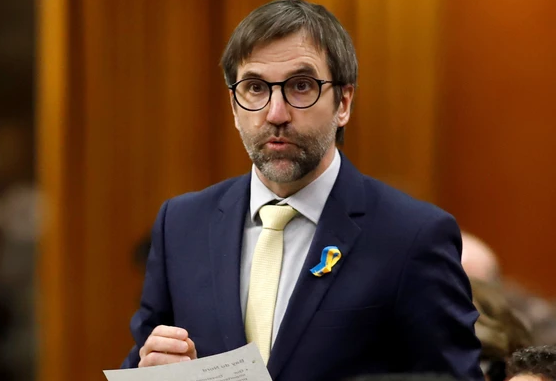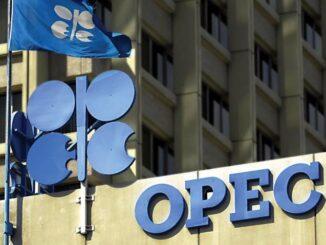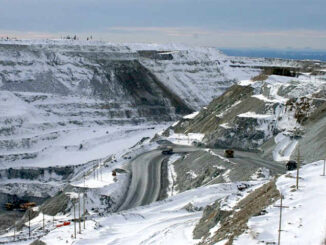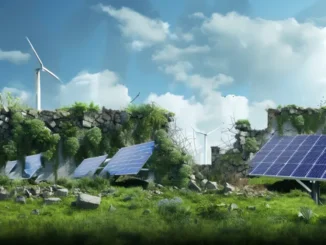
Given that Prime Minister Justin Trudeau’s carbon tax is costing the average Canadian household hundreds of dollars annually when factoring in its negative impact on the economy, how much is it lowering Canada’s greenhouse gas emissions?
In response to an order paper question by Conservative MP Dan Mazier last week (hat tip to commentator Spencer Fernando for reporting it), Environment Minister Steven Guilbeault said:
“The government does not measure the annual amount of emissions that are directly reduced by federal carbon pricing. Retroactively attributing specific GHG reductions to a specific action, such as carbon pricing, a discrete regulation, or a specific incentive, is difficult given the multiple interacting factors that influence emissions, including carbon pricing, tax incentives, funding programs, investor preferences and consumer demand. The National Inventory Report, which reports annually on historical GHG emissions, does not include this information.”
Given that, how can Canadians possibly know if they’re getting good value for the money they’re spending on the carbon tax?
Mazier posted on X that, “Trudeau’s radical Environment Minister admits the government DOES NOT measure how many emissions are ‘reduced’ by their costly carbon tax. Why? Because the carbon tax is not an environmental plan – it’s a tax plan.”
BREAKING NEWS
Trudeau’s radical Environment Minister admits the government DOES NOT measure how many emissions are ‘reduced’ by their costly carbon tax.
Why?
Because the carbon tax is not an environmental plan – it’s a tax plan.
Emissions have gone up since Trudeau. pic.twitter.com/y8qfDn5LJN
— Dan Mazier (@MBDan7) February 2, 2024
Parliamentary budget officer Yves Giroux reported last year that 60% of Canadian households paying the federal carbon tax (in all provinces except Quebec and B.C., which have federally-approved carbon pricing plans) are paying more in carbon tax than they receive in climate action incentive rebates, when factoring in its negative impact on the Canadian economy.
The PBO says this will increase to 80% in Nova Scotia in 2025, 80% in Ontario in 2026, 80% in Manitoba in 2029 and 80% in Alberta and P.E.I. in 2030.
Here are the PBO’s estimated net costs for people living in provinces under the federal carbon tax regime. The first figure is the estimated average household cost this year, with the carbon tax at $65 per tonne of emissions, the second in 2030 when it will be $170 per tonne:
Alberta $710, $2,773; Ontario: $478, $1,820; Saskatchewan $410, $1723; Manitoba $386, $1490; Nova Scotia $431, $1,513; P.E.I $465, $1,521; Newfoundland and Labrador $347, $1,316.
The PBO’s calculations did not include New Brunswick because it joined the federal carbon tax system after it did these estimates.
The Trudeau government says 80% of households paying the carbon tax end up better off financially because of the rebate system but, again, the PBO says that’s only true if you don’t factor in its negative impact on the economy.
Mazier’s question about emission reductions was prompted by testimony from Derek Hermanutz, director general of the economic analysis directorate of the federal environment ministry before the Commons environment committee on Nov. 9, 2023 that:
“I think we’re probably in a world where we could say with some rough analysis that up to one-third, potentially, of the emissions reductions that we’re projecting to 2030 would come from carbon pricing.”
In a Dec. 1, 2023 news release, “How pollution pricing reduces emissions,” the federal government simultaneously estimated reductions from the carbon tax as “roughly one-third” and “as much as one-third” of Canada’s emission reductions in 2030.
A chart in the release estimated the carbon tax will reduce Canada’s emissions (670 million tonnes in 2021, according to the latest available government data) by 19 million tonnes in 2022, 24 million tonnes in 2023, 32 million tonnes in 2024, 43 million tonnes in 2025, 49 million tonnes in 2026, 56 million tonnes in 2027, 62 million tonnes in 2028, 70 million tonnes in 2029 and 79 million tonnes in 2030.
Of course, the government isn’t sure because it hasn’t measured the annual amount of emissions directly reduced by the carbon tax since introducing it in 2019.
This also means most reductions the Trudeau government claims will be achieved in 2030 – at least 66% – have to come from measures other than the carbon tax.
As for the carbon tax’s effectiveness as part of what the Trudeau government says is its $200 billion plan to address climate change, Canada’s emissions in 2021 increased by 1.8% to 670 million tonnes compared to 2020.
The Trudeau government’s goal is to reduce Canada’s annual emissions by 40% to 45% compared to 2005 levels in 2030.
In 2021, they were 8.5% lower than 2005 levels.
We won’t know Canada’s 2022 emissions until April, because the government reports them two years after the fact.
The PBO says Canada’s emissions – 1.5% of the global total – are too small to materially impact climate change.
ENB Top News
ENB
Energy Dashboard
ENB Podcast



